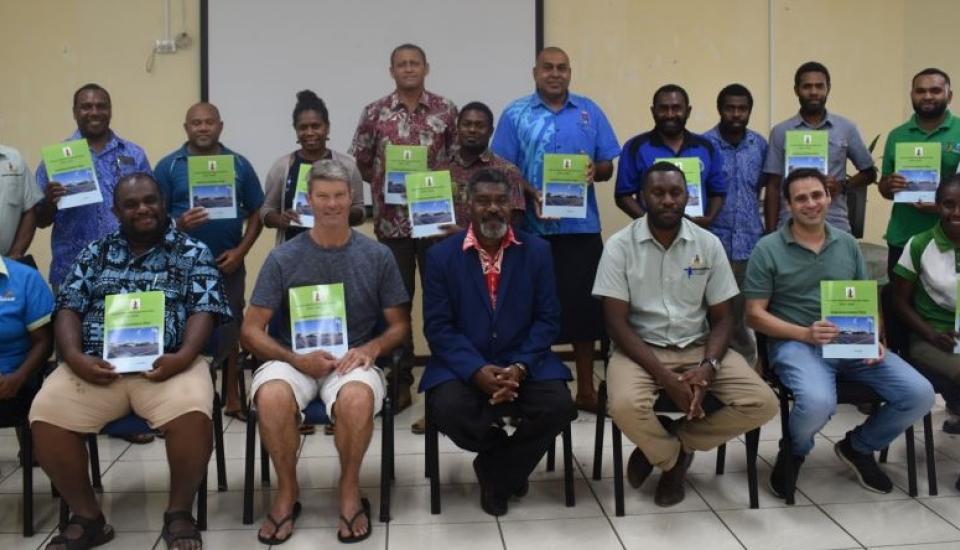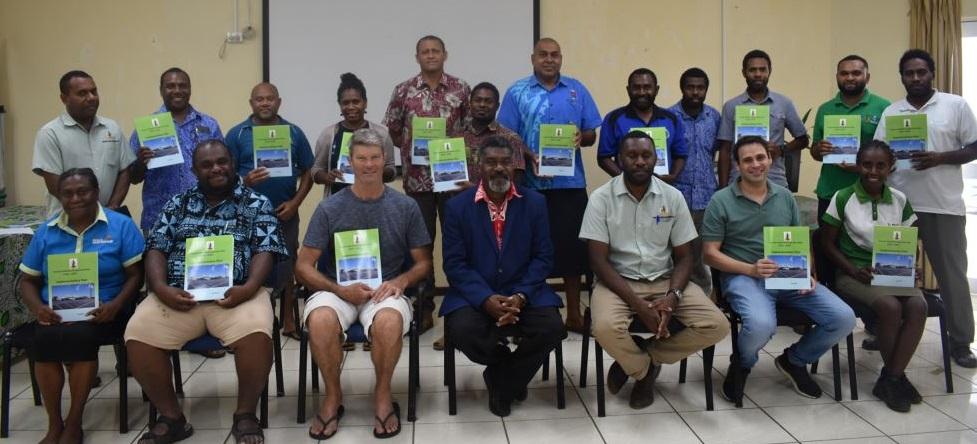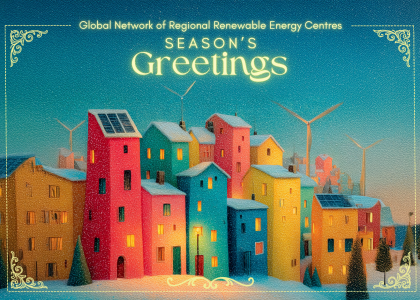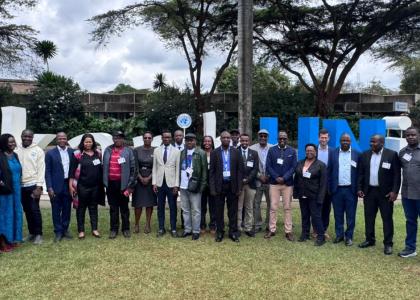Port Vila, Vanuatu, October 2. The National Energy Road Map Implementation Plan (NERM-IP) developed by the Department of Energy with technical support from the Global Green Growth Institute (GGGI) was launched on Tuesday 1st October, by the Minister of Climate Change Adaptation Honourable Bruno Lengkon (MP). Minister Lengkon, formerly Minister of Foreign Affairs in the current legislature, stated that “with the NERM-IP in place, the Government through the Department of Energy can now streamline and prioritise energy projects that would strategically contribute to achievement of the Vanuatu National Sustainable Development Plan (NSDP), Peoples Plan (2016-2030) goals and the National Energy Road Map (NERM) 2016-2030 targets”. He also acknowledged government entities, private sector and other stakeholders for attending the workshops and contributing to the NERM-IP document.
The Minister also acknowledged that a new policy proposal on capitalizing the National Green Energy Fund (NGEF) has been submitted to the Ministerial Budget Committee for 2020 national budget support. The NERM identifies the NGEF as a key tool to support implementation of actions in the energy sector, particularly focussing on renewable energy and energy efficiency. He affirms Government’s financial commitment towards capitalisation of the Fund.
The NERM-IP has noted steady progress made in few of the indicators towards achievement of NERM targets for the years 2020 and 2030. The indicator which recorded the greatest improvement is electricity access by households in off-grid areas, which has increased from 9% in 2015 to 64.4% in 2017. The increase was attributed largely by rural households’ investments in plug and play and solar home systems. The implementation of the Vanuatu Rural Electrification Project in 2016 has contributed to this increase. Other indicators on energy access and green growth have noted some improvements, however, the renewable energy indicator has recorded a decline from 29% in 2015 to 18% in 2017. This is due largely to reduction in use of biofuel use in electricity generation in Vanuatu’s largest electricity concession, Port Vila. Consequently, in his official remarks, the Minister challenged Government officials and local energy stakeholders on the need to put more effort in addressing this, so that Vanuatu is in a better to part to achieve its NDC goal by 2030.
Acting Director of the Energy Department, Mr Matthew Tasale, was satisfied of the outcome of the NERM-IP document, saying “this is the first time that a project prioritisation criterion was developed, through consultations with Government agencies and private sector and adopted by the Department. This in effect will help his staff to assess and prioritise future projects. The priority energy targets as articulated in the NERM and the current and future project pipelines developed and approved using the agreed criteria in this NERM-IP document now forms the basis of the Government’s negotiations for external development financial support”.
While the Acting Director noted that in the past difficulties had been encountered in accessing domestic and external funding for energy projects, the recent approval and establishment of the NGEF marked a milestone in Vanuatu’s energy sector. The Government is adamant about the future of the Fund and its potential to mobilise domestic and external sources of funding for development of energy sector and contribute towards realisation of the NSDP and NERM targets, as well as contribute to Vanuatu’s commitments under the Paris Agreement on climate change through renewable energy and energy efficiency projects.
In line with Government of Vanuatu’s decentralization policy for supporting the development of all the 6 provinces and town municipalities, the NERM-IP developed a sustainable energy strategy and action plan for the local administrative bodies (Provincial Governments and Municipalities).
In addition, the NERM-IP also established a web-based Monitoring, Reporting and Verification (MRV) tool to monitor the status and progress of projects against NERM and NSDP targets. A similar tool was also developed for Vanuatu’s NDC goal and is managed by the newly established Department of Climate Change.
For more information please click here.
Source: Global Green Growth Institute (GGGI)







